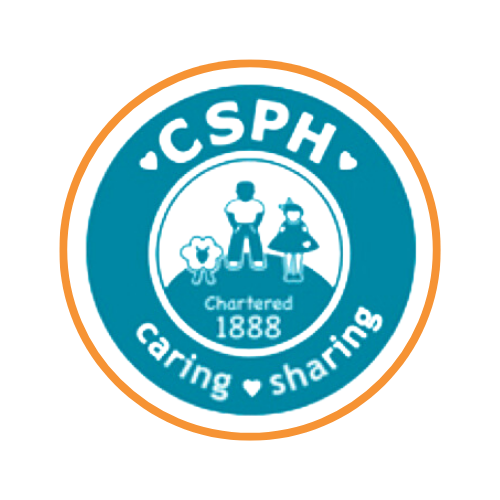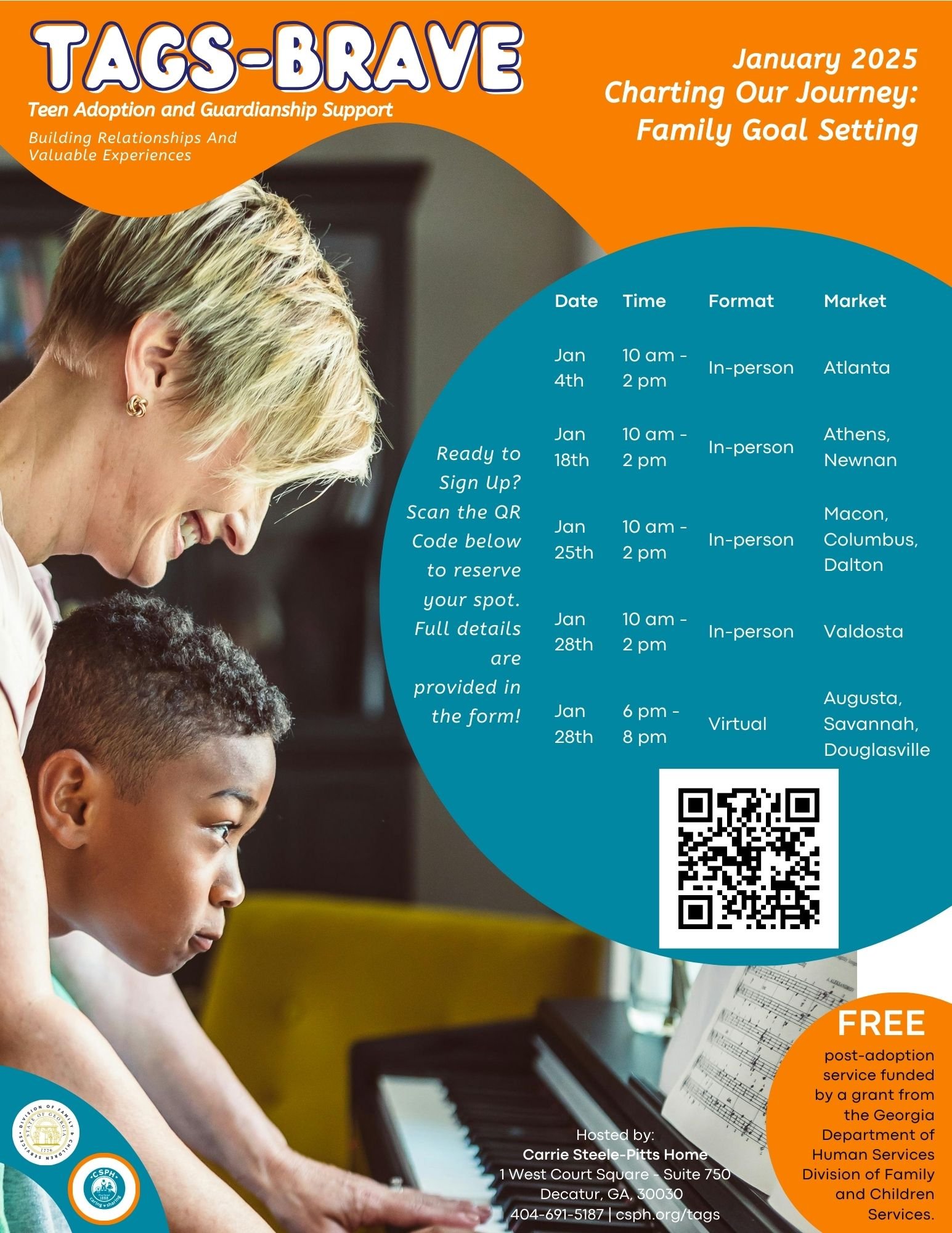TAGS-BRAVE
Teen Adoption and Guardianship Support - Building Relationships And Valuable Experiences
Welcome to TAGS-BRAVE!
TAGS-BRAVE is here to support teens aged 13-18 who are adopted, in guardianship, or in DHS permanent custody with adoptive status.
What We Offer
At TAGS-BRAVE, we create a vibrant and welcoming community where teens can build lasting relationships and valuable experiences. Our engaging program includes:
● Interactive Activities: Fun and creative events that help teens express themselves.
● Personal Growth Workshops: Sessions focused on self-discovery and development.
● Inspiring Guest Speakers: Hear from individuals who have navigated similar challenges.
We cover important topics like trauma, grief and loss, identity, community involvement, emotional well-being, future planning, and academic success. Teens also enjoy nutritious lunches and snacks during our sessions.
CSPH ensures that all program staff receives adoption-specific training to enhance their overall skill set and increase knowledge of the post-permanency continuum.
Why Join Us?
We know Saturdays are busy, but TAGS-BRAVE is worth it. Here’s why:
● Unique Opportunities: Enjoy activities and workshops that promote personal growth and lasting connections.
● Real Stories: Hear firsthand accounts from teens and parents who have benefited from our program.
● Convenient Locations: We meet in 10 cities across Georgia—Atlanta, Athens, Augusta, Columbus, Dalton, Douglasville, Macon, Newnan, Savannah, and Valdosta. If there are no options close to you, let us know, and we will work to create alternatives.
● Supportive Environment: We provide transportation assistance upon request and ensure new attendees feel welcomed and comfortable.
● Fun Incentives: Enjoy prizes, giveaways, and delicious food.
Click Flyer Below To Sign-Up For A Group Near You TODAY!!
Background
Adoption adds to the complexity of adolescent development and adopted teenagers may need extra support in dealing with certain adoption issues. For those who were adopted at an older age from the foster care system, this type of supportive environment may be helpful. In most cases, even when teens appear happy and well-adjusted in their adoptive families, they may be masking the difficult effects of their early life experience.
With the help of adult mentors, TAGS participants strive to understand the unique aspects of adoption and are encouraged to share their concerns openly in a safe environment. For many participants, TAGS is their first opportunity to interact with others who were adopted and to see the similarities of their experiences and feelings with others with shared backgrounds. By sharing experiences, participants can inspire other adopted teens to successfully work through their own challenges, resulting in heightened self-acceptance and self-respect.
The Teen Adoption and Guardianship Services (TAGS aka TAGS-BRAVE) support group, facilitated by Carrie Steele-Pitts Home (CSPH) and funded by the Georgia Division of Family and Children Services, offers comprehensive post-adoption support for teens aged 13-18 who are adopted, in guardianship, or in DHS permanent custody with adoptive status.






















